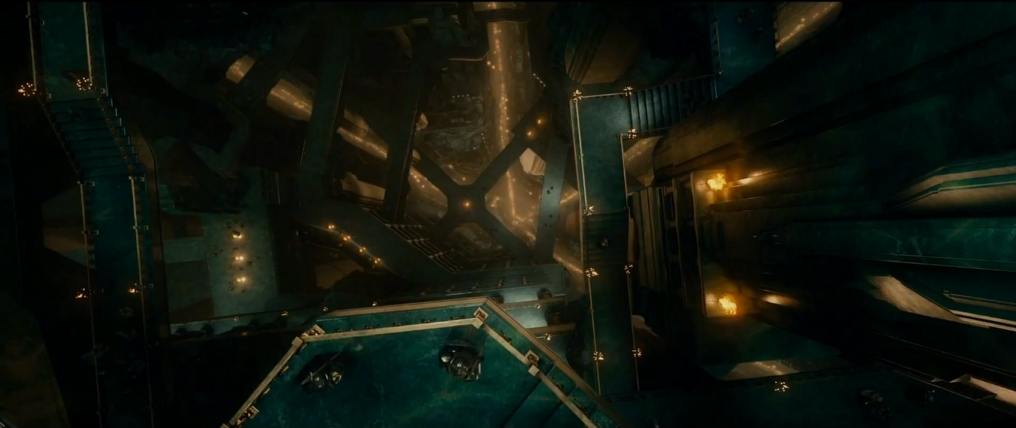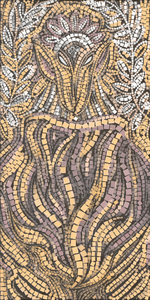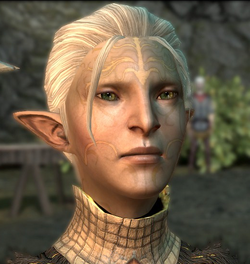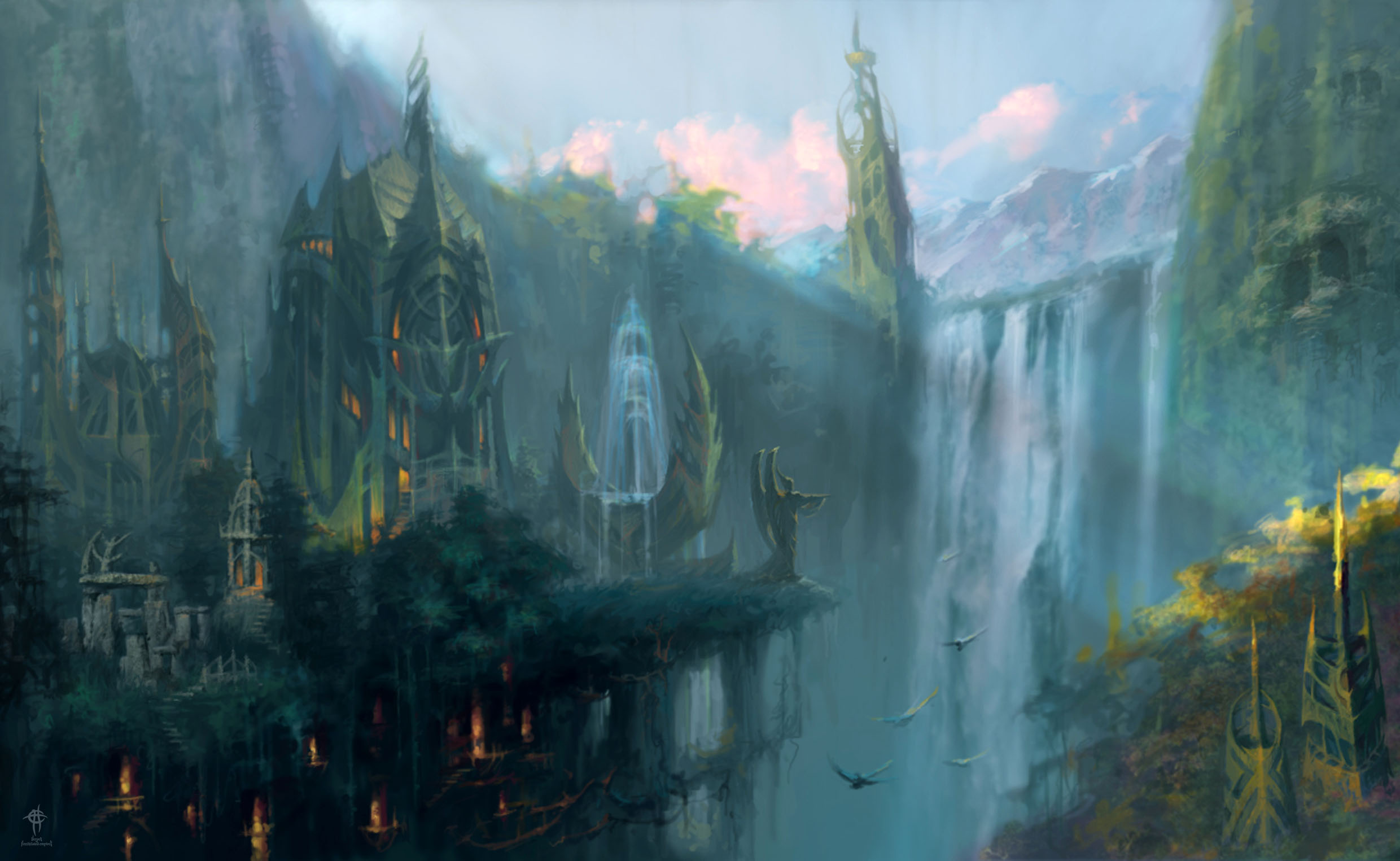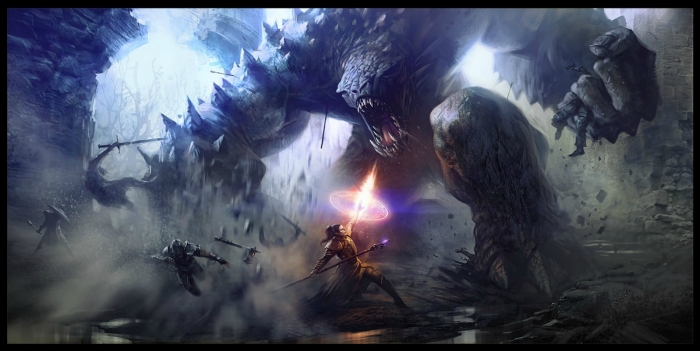Lore Dump part 1
Clan Levellan
Unlike the houses of the other noble houses of the elves the people of clan levellan, which make up those who live in the province of Halam’Shiral, do not title themselves after their house, instead all who live in the area use the clan title of Levellan in place of their own, this is a proud tradition of the border elves who have given themselves the title of Elvenhiem, (or elf blood) to represent their separate culture to that of the deep elves or the forest elves. In order to be accepted in Halam’Shiral an elf must give up their ties to their former liege and pledge their service to the clan, at this point the initiate would be given a small tattoo on their chin, of one of the clan Levellan gods, marking them as an apprentice, elves who are born into the clan are marked as such on their 15th birthday.
Government:
The government of the Clan is managed by the elder council, a group of the most wise and oldest of the clan, as well as the Clans Keeper, and the heads of each of the crafts. The elder council is led by one of the members who is chosen when the previous leader dies, and power rests with them, although the council serves to advise and serve their will and that of the clan.
Religion:
The Elvenhiem have their own religion which is separate to all the rest of Agorath although they still have a place for the creator and the dark one.
In total there are 5 gods, and 4 godesses, as well as the 3 fallen gods. The elven hiem believe that each god choses the form of one creature to walk as when visiting the mortal realm and treat such animals as sacred. The gods are:
El-en-garn:
the Elvenhiem name for the creator, he is seen as the lord of light and the all-father, it is said he walked the land as a Pheonix, spreading light where he travelled, although he has not visited the mortal realm for ages, since the hubris of mortals pushed him from the world.
Mythunal:
The Elvenhiem goddess of justice, as well as women as El-en-garn was the god of men, she is known as the all-mother and many elves ask for her blessing when they are blessed with child. It is said she walks the mortal realm as a Mother Bear.
Falson-Dir:
The god of knowledge and wisdom, it is said that he bestowed his gifts upon the elves and forests in the age of heroes and those who find in serenity and peace may hear his words of wisdom, whispered between the trees. Falson-Dir flies over Agorath in the form of a giant falcon, to tame one is seen as a great honour and blessing by the clan.
Dirathamethn:
keeper of Secrets, and twin to falson-Dir, knowledge and secrecy go hand in hand, as did the two gods who apparently never left each other’s side when they roamed the mortal realm. Dirthamethn is believed to have traversed the mortal plane as a great Raven, hence the use of ravens as messenger birds and the carriers of secrets.
Andarial:
the goddess of the hunt and plenty, before a hunter makes a kill, they will offer thanks to Andarial for gifting them the strength, and the skills to succeed in the hunt. Traditionally part of a kill will be burned as a gift to the goddess, Andarial once roamed Agorath as a glorious griffon.
Cylase:
The goddess of the hearth and family, according to legend cylase taught the elven people how to make fire, and rope as well as treatments for the sick, she is revered as the kind goddess and the protector of the family and home. She roamed the world as a large cat
Junas:
God of the crafts, junas is the god of the crafts and made the elves all their first tools and taught them the way to make and create tools as well as buildings and arts, he is quite well known as the father of the Elvenhiem civilisation. Junas roamed the land of mortals in his true form, rather than taking on the form of an animal and was the only god to do so.
Ghilan’ha:
Earth Mother, while Mythunal is the mother of the gods and the one who looks over the people, it was Ghilan’ha who grew the earth, and shaped the creatures that sprouted from it. Tending to Agorath as one would tend a garden, it is said when the mortals tried to overthrow the creator she was consumed into the earth. Her form is that of a Golden Halla, a gold version of the Halla, a sort of deer like animal
Fenariel:
Fenariel, the Grey Wolf, Fenariel the grey wolf as he is known is the elven god of the dead, he who guides the fallen on their journey to the next life, the wolf represents a significant symbol for the elves and serve as companions for the elite Emerald knights, and so Fenariel serves as a companion in death comforting the souls of the past.
The 3 fallen gods are the dark gods, the elvenhiem have struck all records of them from the history of the people and their names are not known, but we know they are the dark one, or god of madness, the god of despair and the god of pestilence.
Elvenhiem Culture:
The culture of the Elvenhiem is very closed to outsiders, focusing a lot on their religion, which they hope can atone for their past errors, and bid the return of the gods. The elvenhiem are also very close to the animals and flora of the forest and valleys which they inhabit with many taming the wild beasts that roam the undergrowth, the two most revered are the giant falcon and the grey wolf. The giant falcon makes it’s nest high in the provinces north, and the win the loyalty of one, it is said one must show great patience and knowledge, while the grey wolf is more prevalent it is also more timid requiring a determined effort by an elf to bond with one, however many elves still try and it is infact compulsory for the emerald knights, however if successful a wolf will bond with its master and the clan for life, and will protect its companion against all attackers, as such both these animals hold high places of honour in the Elvenhiem festivals.
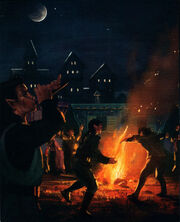
There are 3 major elvenhiem festivals with 2 held yearly and 1 held every 25 years. The first is the Vir’Atishan (or choosing path) in which new initiates chose their apprenticeships which will determine their societal role for the rest of their life, it is an extremely important festival for the elvenhiem as it represents the transferring of knowledge from the old generation to the new.
The second is the Vir’Mathen (Natures Path) a celeberation held at the start of every year, during this time the Elvenhiem celebrate the health of the forest and the animals within, blessings are offered to ask to gods to smile down and bless the forest and its life, while rangers will scour the forest looking for any sign of infection and aid the animals they can. This festival is important to the elvenhiem as it maintains their roots as people of the forest despite growing pressure to live in cities.
The Third Festival held every 25 years is Vir’tirathos (path to forgiveness) it lasts 9 days, and during the time all elvenhiem gather to honour the gods and seek blessings as well as atone for the sins they have committed. The ceremony concludes with a huge ceremony to humiliate the elves as penance for forcing the gods out of the mortal world.
Other than that Elvenhiem culture is very based in food, and meditation as well as perfection of the role one has found oneself in. To the elvenhiem it is the highest etiquette to allow the guest to eat first, and partake of alcohol when attending another elves event, unless informed not to. However elves abhor overweight and drunkards, and while the culture dictates the love of food and wine, it teaches moderation, for great shame is bought on those who fall to mortal temptation like that that removed the gods.
Culture surrounding Courtship
The Elvenhiem have no concept of marriage for people who live such long lives they see not why one should be forced to commit when their lives may be radically different in 20 to 30 years, instead elves simply enter relationships when they feel a connection with someone, however as with food and wine, it is extremely disrespectful to pursue acts of sexual promiscuity, and to sell one’s body for sex is considered the ultimate disgrace, In the cases of pregnancy the female is always considered the primary carer and in the event of a breakup the female may always chose to keep the child, while a male may only if the female consents or passes away. However most couples only engage in such a pregnancy if they already feel like they are deeply in love.




